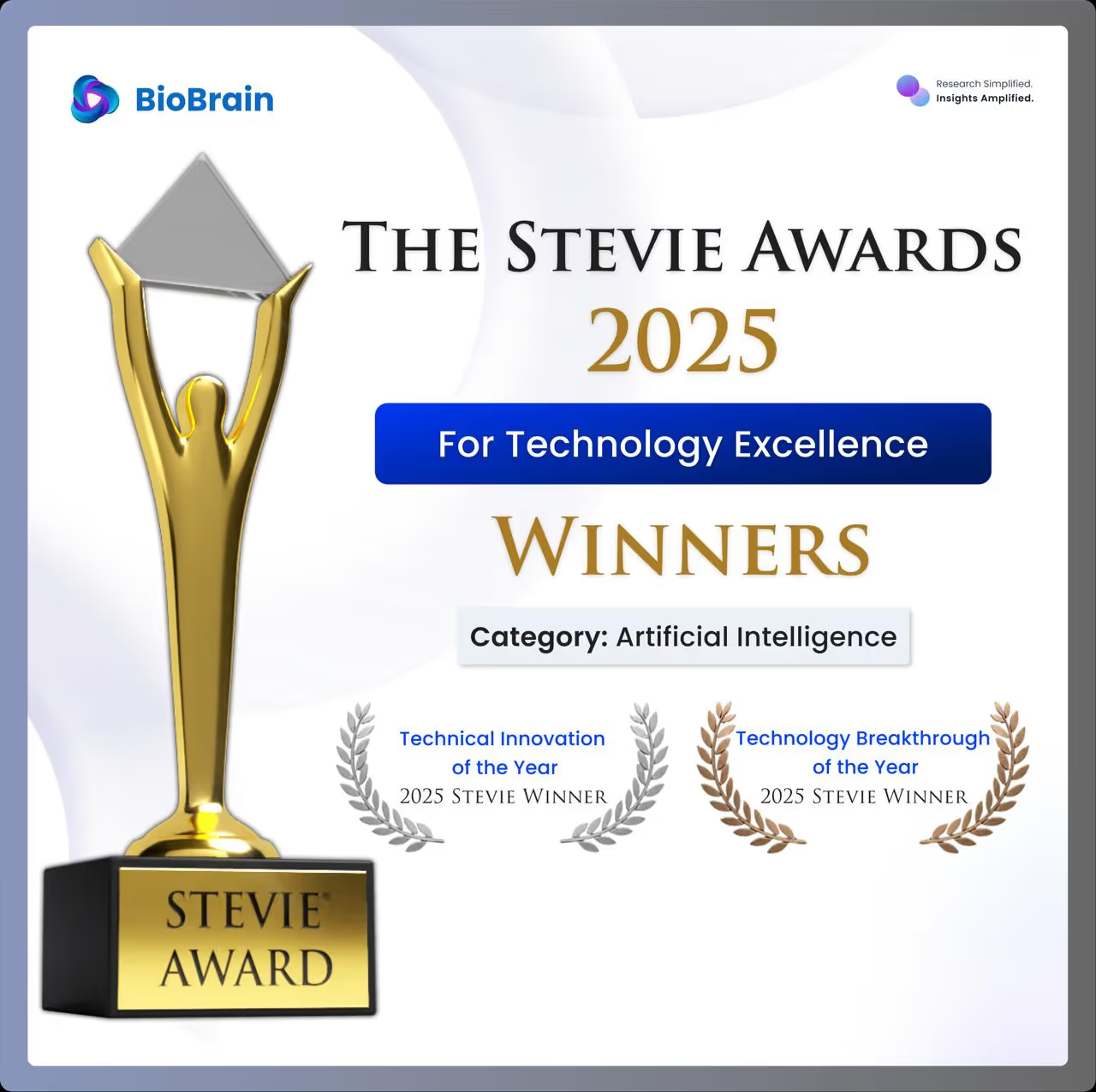In the fast-paced world of product development, understanding consumer needs and preferences is more critical than ever. Market research serves as a vital tool that helps businesses gather insights into what their target audience desires, enabling them to create products that resonate with consumers.
By identifying market trends, assessing competitive landscapes, and uncovering potential gaps, effective market research lays the groundwork for informed decision-making throughout the product development process.
As companies strive to stay ahead in an increasingly competitive environment, agile Market Research Operations (MROps) have emerged as a game-changing approach. Agile MROps facilitate rapid feedback loops that allow organizations to quickly gather and analyze consumer insights.
This iterative process enables teams to test product concepts, gather real-time feedback, and make necessary adjustments before launching a final product. By incorporating consumer insights at every stage of development, businesses can ensure that their offerings are not only innovative but also aligned with market demands.
In this blog, we will explore how leveraging market research within an agile framework is essential for developing products that truly meet the needs of consumers.

The Role of Market Research in Product Development
Market research is a critical component of the product development process, enabling businesses to gather valuable insights into consumer needs, preferences, and behaviors.
By systematically collecting and analyzing data, market research helps organizations identify untapped opportunities, assess demand for potential products, and make informed decisions that shape the entire product lifecycle.
Key Objectives
Identifying market opportunities and gaps
Market research helps uncover unmet needs and emerging trends, allowing businesses to identify opportunities for new product development or improvements to existing offerings.
Assessing consumer demand and preferences
By gathering data on consumer attitudes, behaviors, and willingness to purchase, market research enables companies to gauge the potential success of a product and make data-driven decisions.
Informing product design, pricing, and marketing strategies
Insights from market research are used to shape every aspect of the product, from features and functionality to pricing and promotional strategies. This ensures that products are designed to meet customer needs and are effectively positioned in the market.
Types of Market Research Methods
Effective product development relies heavily on various market research methods that help businesses understand consumer needs, validate ideas, and refine products. Here are some key methods specifically tailored for product development:
1. Qualitative Research
Qualitative research is essential for gaining deep insights into consumer attitudes and behaviors. It helps product teams understand the "why" behind consumer preferences, which is crucial during the early stages of product development.
- In-Depth Interviews: These unstructured or semi-structured conversations allow researchers to explore individual consumer experiences and motivations in detail. By asking open-ended questions, product managers can uncover valuable insights that inform product design and features.
- Focus Groups: In focus group settings, a small group of participants discusses their perceptions of a product concept. This method encourages interaction among respondents, providing diverse perspectives and highlighting potential strengths and weaknesses of the product idea.
- Usability Testing: This method involves observing users as they interact with a prototype or existing product. Researchers can identify usability issues and gather feedback on user experience, which is critical for refining product features before launch.
2. Quantitative Research
Quantitative research provides numerical data that can be statistically analyzed to identify trends and validate hypotheses. This method is particularly useful for assessing market demand and consumer preferences.
- Surveys: Structured questionnaires gather data on consumer preferences, behaviors, and demographics. Surveys can be distributed online or in person, allowing researchers to collect a large volume of responses quickly. Analyzing survey results helps determine how well a product concept aligns with market needs.
- A/B Testing: This experimental approach involves comparing two versions of a product or marketing material to see which performs better among consumers. A/B testing allows teams to make data-driven decisions regarding product features, pricing, or promotional strategies based on real user feedback.
3. Mixed Methods
Combining qualitative and quantitative research methods—known as mixed methods—offers several advantages in product development:
- Comprehensive Insights: By integrating qualitative insights with quantitative data, businesses can achieve a holistic understanding of consumer behavior. Qualitative research provides context to the numerical data obtained from surveys, helping teams understand the reasons behind consumer preferences.
- Validation of Findings: Using both methods allows researchers to validate findings across different data sources. For example, if qualitative interviews reveal common pain points among users, quantitative surveys can confirm whether those issues are widespread across the target market.
- Flexibility in Research Design: Mixed methods enable researchers to tailor their approach based on specific objectives or challenges during the product development process. This adaptability ensures that teams can respond effectively to emerging insights.

Integrating Agile MROps in Market Research
Agile Market Research Operations (MROps) represent a modern approach to conducting market research that emphasizes flexibility, speed, and collaboration. By adopting agile methodologies, businesses can create rapid feedback loops that facilitate continuous improvement in product development based on real-time consumer insights.
Agile MROps are characterized by their iterative nature, breaking down research processes into smaller, manageable cycles known as sprints. This approach allows teams to adapt quickly to changing market conditions and consumer feedback.
Agile MROps prioritize collaboration among cross-functional teams, enabling them to work closely with stakeholders and end-users throughout the research process. The focus is on delivering actionable insights quickly, which can be immediately integrated into product development strategies.
Benefits of Agile MROps
Faster Iteration on Product Concepts
With Agile MROps, teams can quickly test and refine product ideas based on consumer feedback. This iterative approach reduces the risk of launching products that do not meet market demands and accelerates the overall development timeline.
Enhanced Responsiveness to Market Changes
The agile framework allows organizations to pivot their strategies based on real-time insights. As consumer preferences evolve or new trends emerge, agile teams can adjust their research focus and product features accordingly, ensuring that offerings remain relevant.
Improved Data Quality and Trust
By implementing rigorous quality processes within the agile framework, organizations can ensure that the data collected is reliable and actionable. This commitment to data integrity fosters trust among stakeholders and enhances decision-making capabilities.
Cost-Effectiveness
Agile MROps can lead to cost savings by streamlining the research process and reducing the time spent on lengthy traditional methodologies. Organizations can allocate resources more efficiently while still obtaining high-quality insights.
BioBrain - A ResTech Disruption
In the rapidly evolving landscape of market research, BioBrain stands out as a pioneering platform that integrates agile Market Research Operations (MROps) with advanced AI and automation. This innovative approach addresses long-standing inefficiencies in product development research, offering businesses a streamlined pathway to gather insights that drive successful product launches.
Agile MROps: A New Paradigm for Market Research
BioBrain’s agile MROps model revolutionizes how market research is conducted by facilitating rapid feedback loops. This iterative process allows organizations to quickly test product concepts and gather real-time consumer insights, enabling them to refine their offerings based on actual market demands. By leveraging automation, BioBrain accelerates the data collection and analysis phases, ensuring that teams can pivot swiftly in response to consumer feedback and changing market conditions.
Impeccable Data Quality
At the core of BioBrain’s value proposition is its commitment to delivering impeccable data quality. The platform employs proprietary quality processes powered by cutting-edge technology to ensure that the data collected is reliable and actionable. This gold-standard approach not only enhances client trust in the insights generated but also empowers businesses to make informed decisions that are critical to their success in the marketplace.
Differentiated Edge with Top Suppliers
BioBrain distinguishes itself as the only platform that collaborates with the world’s top suppliers, guaranteeing access to the best samples for any research study. This unique advantage ensures that clients receive high-quality data from diverse demographic groups, enhancing the robustness of their research findings. By providing unparalleled access to premium samples, BioBrain positions itself as a leader in the ResTech space, setting a new standard for quality in market research.
A Quality Stamp for the Industry
As BioBrain continues to innovate and refine its offerings, it extends its positioning as a quality stamp within the industry. Organizations that utilize BioBrain’s platform can confidently assert that they are adhering to the highest standards of data integrity and insight generation. This commitment to excellence not only enhances client outcomes but also elevates the overall standards of market research practices across the industry.
In conclusion, BioBrain represents a significant disruption in the realm of product development research through its agile MROps model. By combining advanced AI and automation with a focus on impeccable data quality and strategic partnerships with top suppliers, BioBrain empowers businesses to navigate the complexities of market research effectively.
As companies increasingly recognize the importance of real-time insights and agile methodologies, BioBrain is poised to lead the charge in transforming how organizations approach product development, driving innovation, and ensuring success in an ever-changing marketplace.













